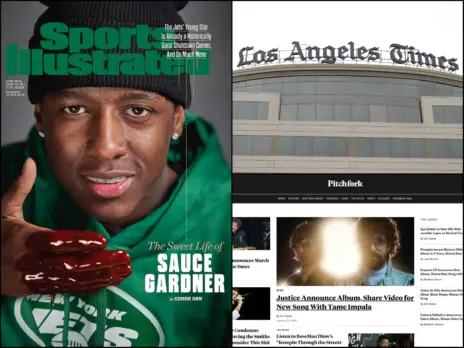
A journalist’s shorthand notes from court were enough to prove her story accurate in the face of a complaint to the Independent Press Standards Organisation.
The report covered a Fatal Accident Inquiry (FAI) into the death of taxi driver James Irvine who drove off the side of a quay and into the water after being called to collect Graham Love from a port.
The article, by reporter Catherine Hunter, appeared in the Ayr Advertiser on 9 April with the headline: “Tragic taxi driver could have been saved, inquiry hears.”
Love, who runs the Ayr Harbour Tug Company, complained to IPSO that the story breached the accuracy clause in the Editor’s Code of Practice.
He said references to the possibility that Irvine could have been recovered from the water alive if the alarm had been raised sooner were inaccurate and this claim had not been heard at the FAI.
He was concerned this suggested that if he had acted differently, the taxi driver could have survived.
Love said submissions to the court had been primarily taken from written submissions which had been placed before the court and that statements heard on the day would not have notably differed.
He provided IPSO with extracts of some of these submissions that he said made clear it had not been heard in court that the taxi driver could have been saved.
The newspaper contested the complaint and said its article was an accurate report of what had been heard in court.
The paper’s journalist had been present on the day of the hearing and provided IPSO with the shorthand notes she had taken, along with a transcript.
The transcript supported the statements that the taxi driver could have been recovered from the water alive, said IPSO.
The newspaper said the inquiry had not heard any suggestion that the complainant should have been the person to raise the alarm, and no such suggestion had been included in the article.
It added that the written submissions provided by the complainant were not a verbatim record of what was heard at the inquiry and that other statements were added as these were read out in court.
IPSO’s Complaints Committee said: “The newspaper was able to provide notes which supported its account that the Inquiry had heard that the taxi driver could have been saved if the alarm had been raised sooner.
“It presented this as a claim, and made clear that no findings on the matter had yet been made. There was no failure to take care over the accuracy of the article; there was no breach of Clause One.”
The committee said Love had acknowledged that the written submissions were not necessarily a complete and accurate record of the oral submissions heard on the day.
“In light of this, and given that the journalist had notes which supported the details reported, the committee could not establish that the reference complained of was a significant inaccuracy which would require correction under the terms of Clause One,” it said.
“In any case, the Committee found that the article did not contain the implication that the complainant had acted improperly or had potentially been at fault; any such suggestion would not have been supported by the written submissions presented to the court.”
Picture: Pixabay
Email pged@pressgazette.co.uk to point out mistakes, provide story tips or send in a letter for publication on our "Letters Page" blog







